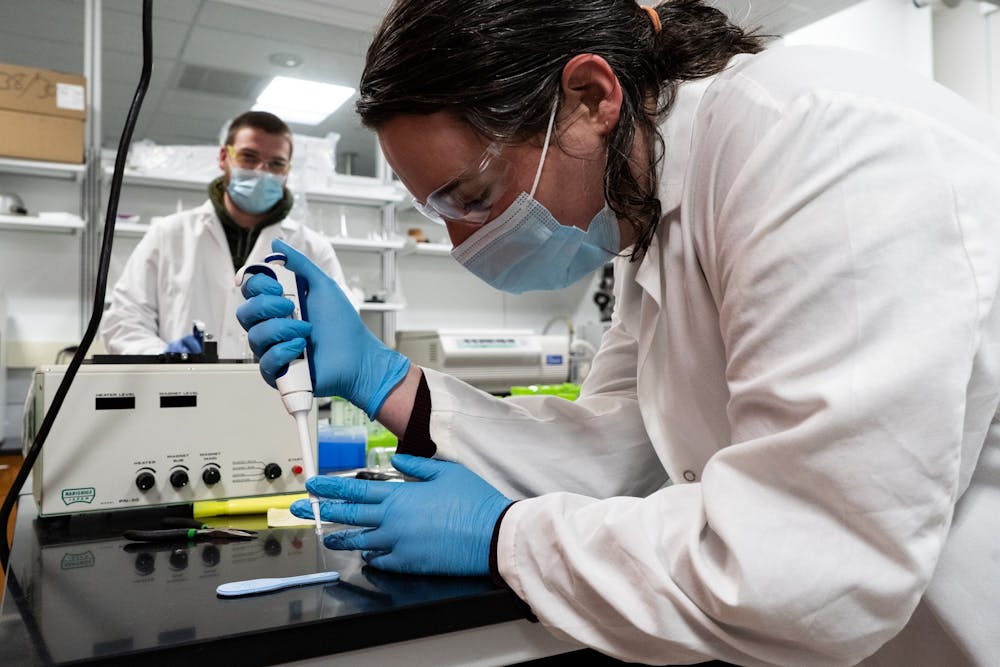When the pandemic started, Ronit Freeman, an associate professor in UNC's department of applied physical sciences, said she was eager to see how she could contribute to COVID-19 research.
Her team had been doing research on other types of diseases in the airways and lungs, so she looked into applying that expertise to COVID-19. This led to the development of GlycoGrip, a cost-effective sugar-coated COVID-19 testing strip.
“The idea started like any idea,” Freeman said, “You meet with your team members, and all the scientists come together and think, 'What is the best way to solve this?' And the most important thing for us was tests."
The team envisioned a COVID-19 test that would work fast, give accurate results and be cheap to manufacture. Freeman said this would help make it available around the world, specifically in rural and low-income communities.
To help with developing the test, Freeman expanded her team by recruiting more talent outside of the lab. One of the lead scientists on her team is Sanghoon Kim, a diagnostics expert from South Korea.
She also partnered with other labs, such as the University of California, San Diego, to further her team’s understanding of how the virus works and how they could better utilize it.
The development of GlycoGrip was based on how COVID-19 infects cells. In the body, cells are sheathed in a sugary coating with which, Freeman's team found, viral material also binds to before infection. GlycoGrip uses these same sugars to capture and detect the virus on its' tests.
“The clever mechanism here is the more we know about how the virus infects us, the more we can use the knowledge against it,” Freeman said. “This test pretty much is doing that. It is a very different way of developing diagnostic devices than current methods using DNA or antibodies.”
The GlycoGrip differs from PCR and rapid tests because it does not have to break apart the virus or use more complicated molecules, Freeman said. This makes the GlycoGrip test strips less costly and more stable in different environments.




